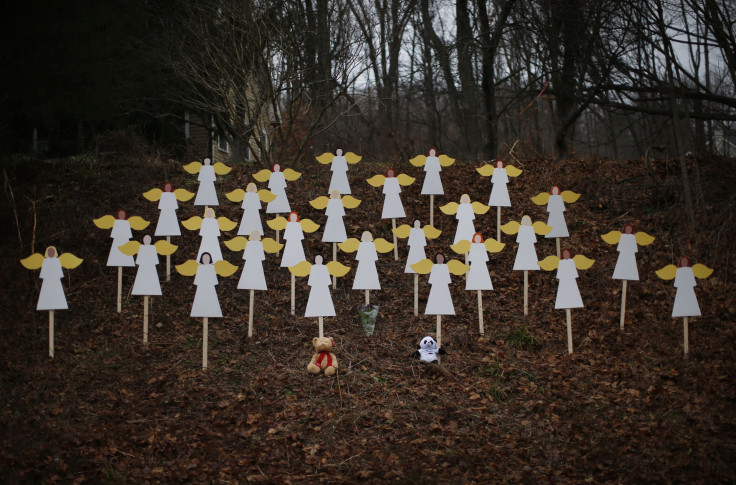Gun Control 2013: Tougher State Laws On The Rise After Newtown, Aurora Tragedies

The country has seen a surge in gun legislation since the Sandy Hook Elementary School shooting in Newtown, Conn., for state bills that both tighten and loosen gun laws -- but trends show more bills expanding gun control than bills increasing gun rights.
According to an analysis by the Law Center to Prevent Gun Violence, there has been a 231 percent increase in the number of state gun control bills so far in 2013 compared with all of last year. Bills that loosen gun laws rose by 67 percent compared to all of 2012, according to the center. And the ratio of bills that expand gun control to those that weaken gun laws has risen 100 percent from last year.
Most Americans have been in favor of gun regulations, including expanding background checks and banning assault weapons, for some time, but the Newtown and Aurora shootings have been a catalyst for increasing gun control, according to Lindsay Nichols, an attorney at the San Francisco-based center.
“The kind of policies that we’re talking about … they’ve been wildly popular for years,” Nichols told IBTimes. “What’s different is the outcry. People have been mobilized by what happened in Newtown.”
The analysis does not include the package of gun laws agreed to earlier this week among lawmakers in Connecticut, where Sandy Hook occurred. The package includes expanding registering requirements for guns that hold 10 or more bullets, banning an additional 100 assault weapons, and mandatory background checks for all gun sales.
Colorado, another state reeling from the effects of a mass shooting, also toughened its gun laws by requiring universal background checks and banning large-capacity magazines. The state is where 12 people were killed and 58 others injured during the July 2012 shooting at an Aurora movie theater.
While Newtown and Aurora have prompted some states to pass stronger gun control laws, or at least prevented loosening gun laws (a Utah bill to allow concealed carry without a permit was vetoed, as was an Alabama bill to form volunteer emergency security services at public schools consisting of current and retired school employees and local residents), other states are loosening their gun laws following the tragedies.
Bills to allow guns in houses of worship and allow staff and faculty on college campuses have been approved in Arkansas, while Kentucky did away with its six-month residency requirement to apply for a concealed carry permit. The Arkansas House of Representatives also passed legislation to allow guns in bars and liquor stores, although the bills have yet to pass the state’s upper chamber.
“That’s the continuation of the trend,” Nichols said, referring to states that loosen gun laws after mass shootings because their legislators believe more guns are the answer to preventing violence. “In some states, the legislators hide behind the NRA.”
After the NRA’s long silence after Newtown, the head of the powerful gun lobby group, Wayne LaPierre, responded to the tragedy by proclaiming that arming teachers or school personnel would be a powerful deterrent. But Nichols said Americans and their lawmakers are rejecting that idea, for the most part.
“The public recognizes that that isn’t the appropriate response,” she said.
© Copyright IBTimes 2024. All rights reserved.






















